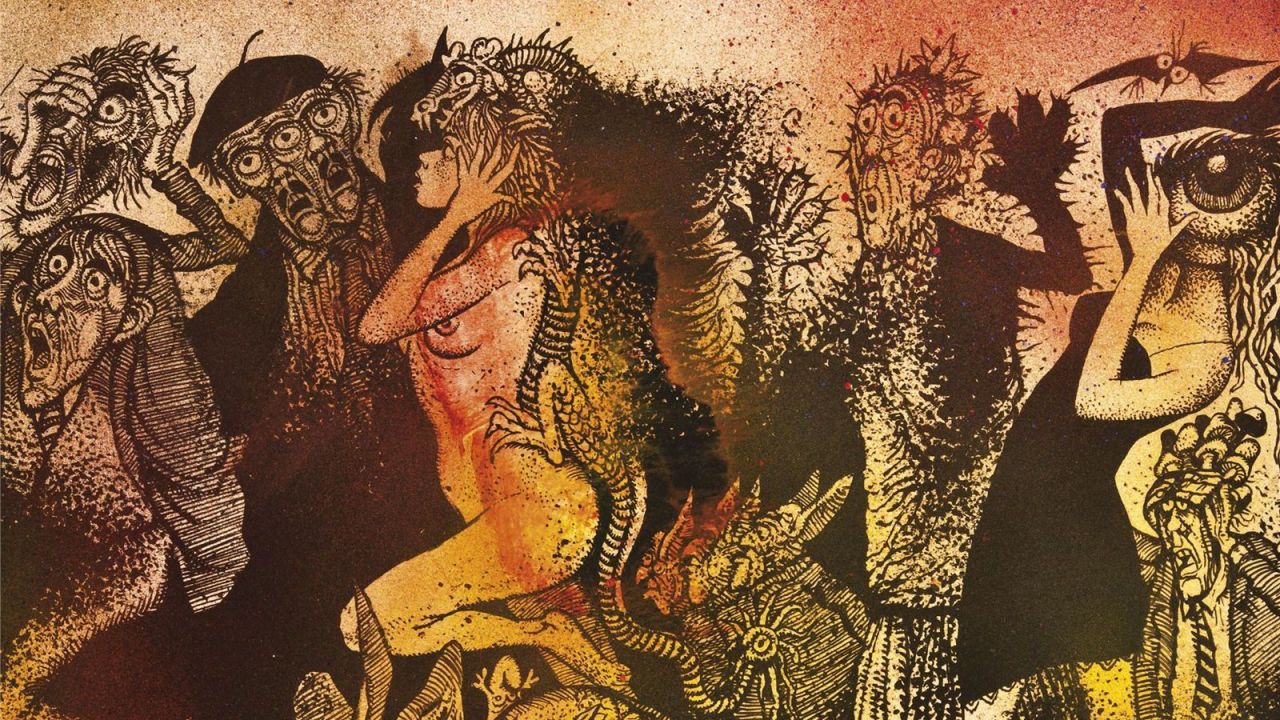The thing that makes progressive music so constantly appealing, intriguing and challenging to listen to is that, in its purest form, it has always eschewed the perceived norms of music-making and carried on doing whatever the hell it felt like doing. It’s what set bands like King Crimson, Pink Floyd and Genesis apart from your more standard hard rock bands of the era, creating timeless musical exercises that still hold to this day. It is this approach and these ideals that are writ large over the much-anticipated Storm Corrosion debut.
“This is not background music. It’s demanding and you need to pay attention,” says Mikael Åkerfeldt of his musical partnership with Steven Wilson. He’s spot on too. These two men know their way through even the most obscure corners of prog’s rich heritage better than most, and draw from that knowledge to create music that HAS to be listened to.
Just like those great albums of the early 70s, you need to immerse yourself wholly in the music to appreciate its majesty. Everything operates on several levels, often at once. While the epic title track seduces with a delightfully memorable melody, its mid-section drags you screaming internally through a wall of glaring white-noise hell, before settling you back down on the soft melodic clouds that ushered you in.
Lock Howl’s inherent eeriness is offset by jovial psychedelia; the stark bleakness of Hag brings with it an unsettling section of creepy laughter. Even the relatively gentle opener Drag Ropes pitches a sweet frailty against an altogether more sinister backdrop. When the short, sweet melody of Happy threatens to end in a dark cloud of torment, it is a genuinely menacing moment.
Allegedly, Wilson and Åkerfeldt originally planned to form a prog-metal supergroup. Compared to what they’ve offered up, that would have been, frankly, awful. Instead, acid folk-drenched acoustic guitars, unsettling orchestration and a hatful of perverse and disturbing effects create an absorbing soundtrack, pitching elements of their day jobs against truly progressive minds such as Scott Walker, Terry Riley and Talk Talk’s Mark Hollis. There are enough recognisable motifs from Wilson’s own Grace For Drowning and Opeth’s revolutionary Heritage to satisfy curious fans of both.
Both artists have turned their backs against what may be perceived as extreme music, so prog fans averse to guttural vocals, thrashing guitars and rhythms can breathe easy, and immerse themselves in music that is groundbreakingly extreme in its own right. Nobody said this would be easy. It is, however, utterly brilliant.

